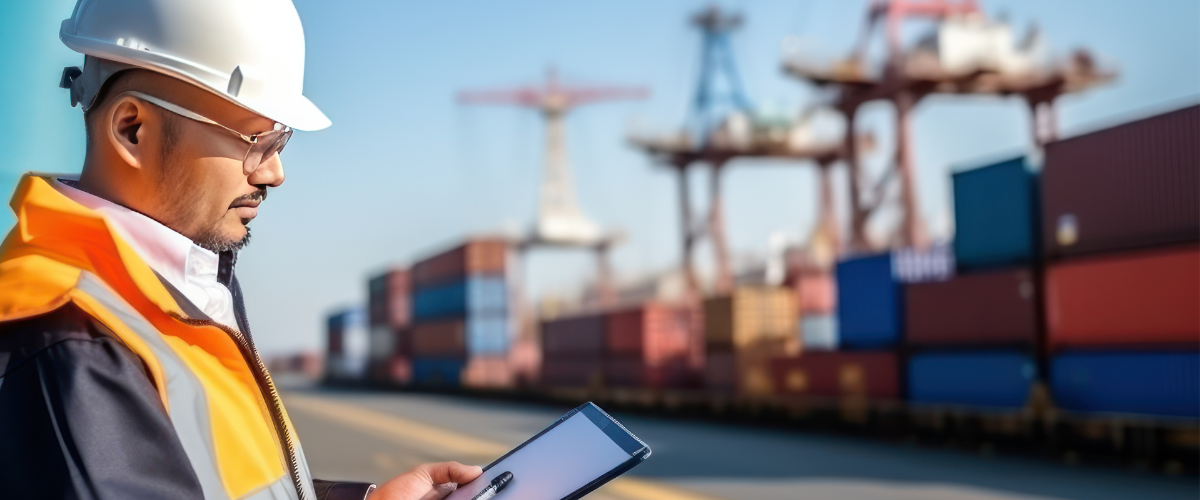In today’s interconnected world, global trade plays a vital role in the success of businesses around the globe. However, managing international trade operations can be a complex and daunting task involving various stages such as order management, logistics, and settlement activities. To navigate this intricate landscape and achieve operational excellence, companies are increasingly turning to the practice of global trade management.
UNLOCKING EFFICIENCY AND BOOSTING CASH FLOW: THE POWER OF GLOBAL TRADE MANAGEMENT
As the global economy becomes more interconnected and transport connectivity improves, larger quantities of goods are being imported and exported yearly. Leveraging the benefits of cheap labor and abundant availability of raw materials and natural resources, countries specialize in producing goods where they have a natural advantage while simultaneously importing goods where other countries have a cost advantage. Consequently, world trade by volume and value has consistently expanded at 4% and 6%, respectively, since 1995.
In an effort to boost international and cross border trade, countries enter into bilateral and free trade agreements with developed countries or major markets to ensure priority and preferential access to their products. Besides, groups of countries also align to form regional trading blocs based on the anticipation of mutual benefits that could accrue from such alliances. Examples include the United States-Mexico-Canada Agreement (USMCA), the EU (European Union), and ASEAN (Association of South East Asia Nations). The UN estimates that as of 2022, the world’s MFN-applied tariffs stand at an average of 9%.
The growth in international trade inevitably gives rise to the need for having in place rules to govern the burgeoning trade, with adequate safeguards to protect the commercial and strategic interests of countries involved, as well as setting up government agencies vested with the appropriate levels of authority and covering the relevant jurisdictions, to monitor trade and ensure compliance with applicable rules.
In this scenario, trade management has assumed greater importance, and companies involved in the international trade of goods and services have dedicated trade management departments.
IMPORTANCE OF TRADE MANAGEMENT IN INTERNATIONAL TRADE AND LOGISTICS
The trade management function has gained importance over the last few years as companies expand their markets overseas, and therefore increasingly need to be cognizant of the relevant rules and procedures across all their markets and design robust processes to ensure compliance.
While trade management is a very broad term, and the precise scope of activities covered thereunder can vary depending on the organization, its corporate structure, industry, and countries involved, as per the commonly accepted definition, trade management broadly incorporates all the activities and tasks that are concomitant to the sale and transport of goods and services. This would prima facie include not just sales and advertising initiatives but also handling the export and import process, including transportation, customs clearance, and associated documentary requirements.
Thus, the trade management function is responsible for international trade and concomitant logistics and supply chain activities.
CHALLENGES FACED WITHIN GLOBAL TRADE MANAGEMENT
In their quest to ensure due diligence and compliance with customs and documentary requirements, the trade management function is confronted by several challenges, the most prominent of which are explained below:
1. Numerous regulations and multiple jurisdictions:
The diversification of and linkages in modern-day supply chains means that even in bilateral trade in any product between 2 countries, other countries will be indirectly involved (as components for the product could be sourced from or manufactured in other countries).
This means that in a single transaction, there will be multiple jurisdictions and numerous regulations involved, adding significantly to the complexity of the transport and customs process.
2. Comprehensive documentary requirements and the penalties in case of non-compliance
As a result of the applicability of diverse jurisdictions and regulations, the documentation and regulatory compliance requirements are equally multifold, covering various countries and in multiple formats and languages. The need to consolidate, comprehend and compile customs documentation is thus rendered even more difficult. The ramifications in case of irregularities or inadvertent omissions in documentary procedures can be severe, with penalties ranging from monetary fines to the imposition of trading restrictions.
3. Manual and time-consuming process:
The entire customs clearance process is extremely manual. Adhering to the established processes by customs authorities, will, in many cases, require considerable labor, time, and effort, which can impede workflows and compromise the stability and reliability of the supply chain.
4. Human errors might impact or delay the process:
Considering the manual customs processes, the probability of human errors and lapses is high, exposing the importer to risks arising from delays in clearing cargo. This, in turn, could lead to the incurrence of detention and demurrage charges, compromise the safety of cargo, and increase the probability of potential claims for damages.
5. Confidentiality of data:
With the number of documents floating around, maintaining the confidentiality of data can be difficult. Also, with the increasing incidences of cyberattacks and malware infestations, companies and customers have seen their confidential data being leaked and misused.
HOW AI-POWERED CUSTOMS CLEARANCE CAN TRANSFORM TRADE MANAGEMENT
In recent years, we have seen a proliferation of technological solutions designed specifically for the supply chain and transportation industry. These solutions intend to solve problems at various stages of the supply chain.
Advancements in AI have made it possible to streamline and automate even complex tasks such as customs clearance and documentation, facilitating better compliance for these supply chains.
AI and machine learning-powered platforms offer a wide range of functionalities, such as data ingestion, automating workflows, optical character recognition, and real-time visibility, that have the potential to transform trade management, making it much more efficient and effective.
The use of AI to gather critical data elements from a wide range of documentary sources means onboarding with such providers is simple, easy and with a no-code integration process. It allows for a more harmonized system in the logistics process.
Organizations are increasingly adopting such systems for time and cost savings, besides reducing workforce requirements and streamlining the hiring process.
FUNCTIONALITIES AND BENEFITS OF KLEARNOW’S AI-POWERED PLATFORM
KlearNow’s AI-powered data ingestion platform helps importers and forwarders address a number of challenges that have traditionally afflicted the trade management process.
The more prominent functionalities and associated benefits are:
1. Mistake-proofing to prevent inadvertent errors:
The system is designed to not accept inaccurate or illogical data entry. Examples range from users not being able to update shipment arrival date if the date is prior to the shipment departure date or where a user tries to update alphanumeric characters in the field for the number of packages, or validating HTS codes to ensure the digits for the country match.
2. Visibility into the status of all on-the-water shipments:
Users have real-time visibility of their shipments and can thus monitor the status and condition of all shipments. This enhances the quality of supply chain planning and helps maintain inventory levels at optimal levels, besides facilitating advance planning and proactive transport arrangements.
3. Generate actionable summary and insights from historical data:
KlearNow uses AI and ML to create an iterative learning process, which generates an actionable summary and insights from historical data. This is useful when the system analyzes historical data for the time Commercial Invoices are received and then generates an alert warning the user if the commercial invoice for any shipment is not received within the normal timeframe.
4. Highlight commonly occurring issues and trends:
Analyzing data for past shipments, the system can identify and highlight trends and common issues, thus enabling users to take remedial action and avoid the issues from occurring in the future.
5. The ease of integration
Using a no-code integration approach, AI can be seamlessly used in any organization without a complex or lengthy onboarding. Simply copying the AI tags into critical documents or email chains allows any company to start reaping the benefits of this cutting-edge technology.
CONCLUSION
As companies emphasize sales, the scope of trade management has increased exponentially, in tandem with the spread of globalization, bringing with it new challenges and increasing operational complexity.
Using technology to optimize and automate trade management tasks can smoothen the process, improve customs clearance times, and develop robust supply chains.
KlearNow offers solutions that transform the trade management function through AI-powered customs clearance.
Customers using KlearNow have reported a 70% reduction in document processing time and an 80% improvement in day-to-day logistics management. This has helped improve global customs compliance by 95% and reduced operational costs by 90%.For more information on how KlearNow can help your business, please click here.




